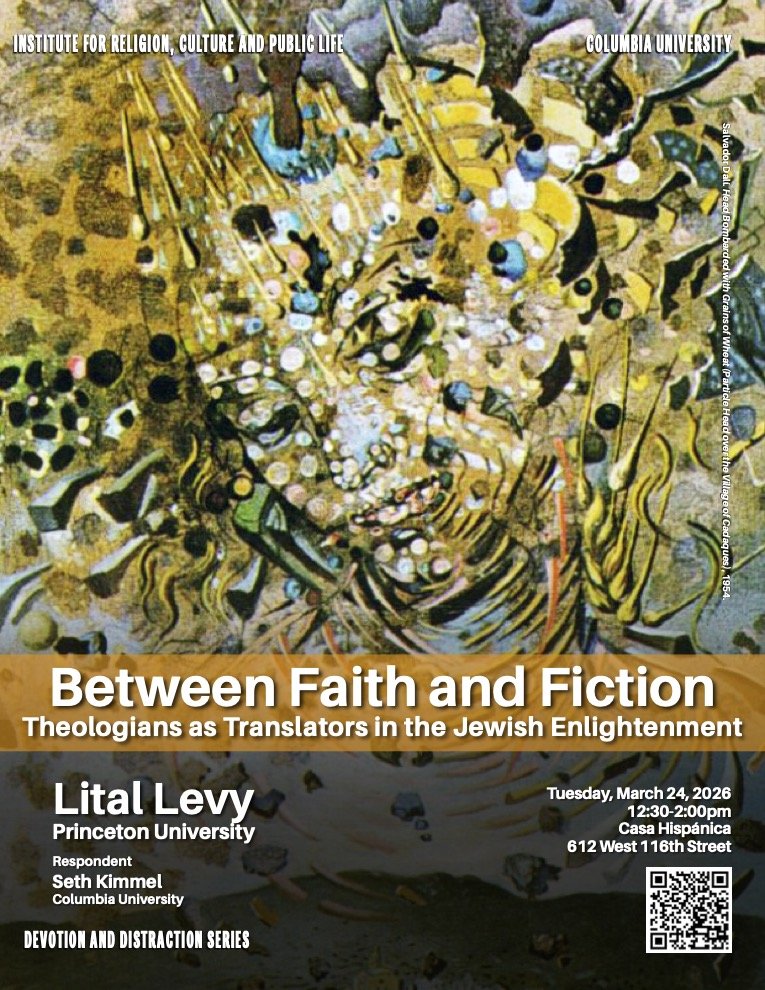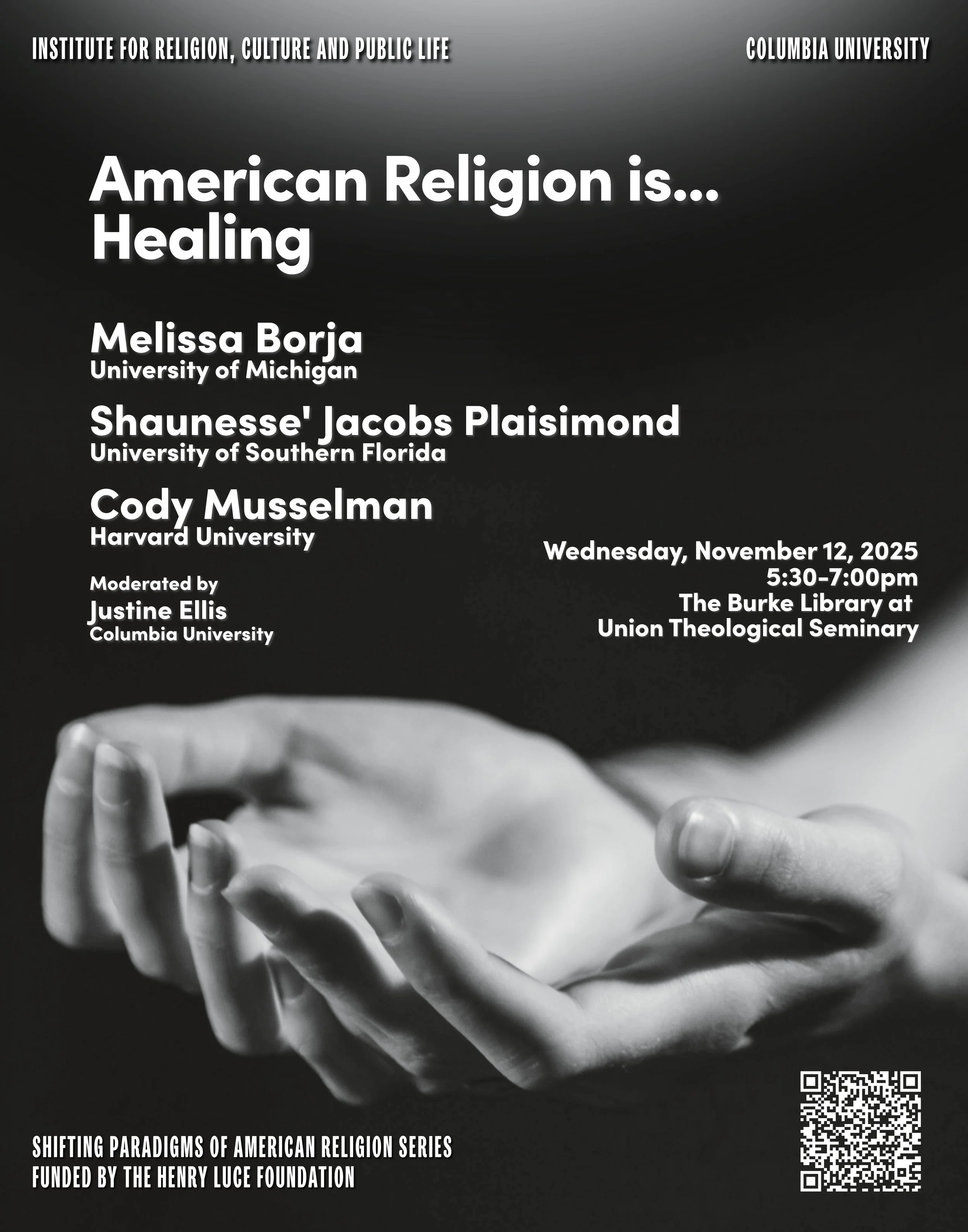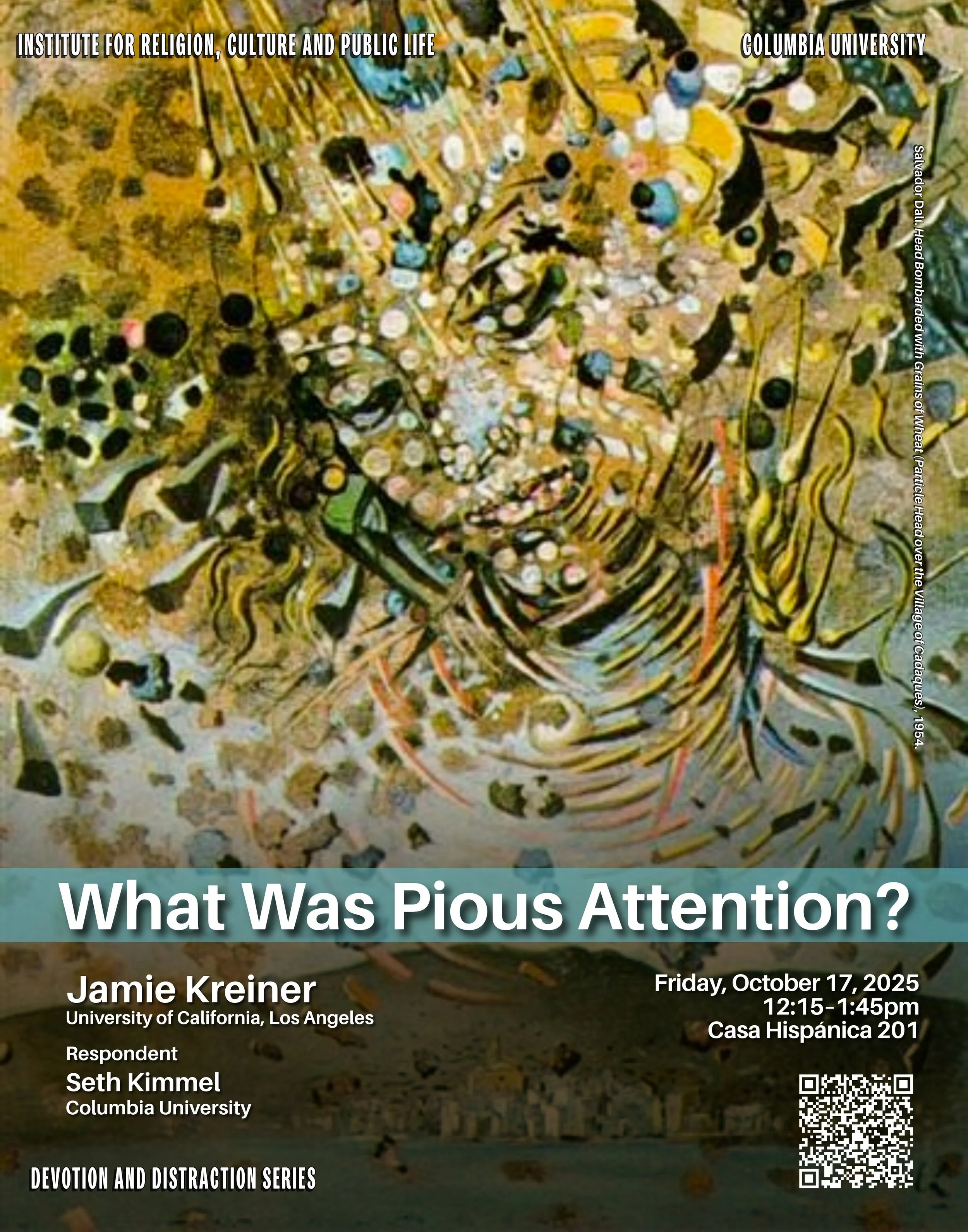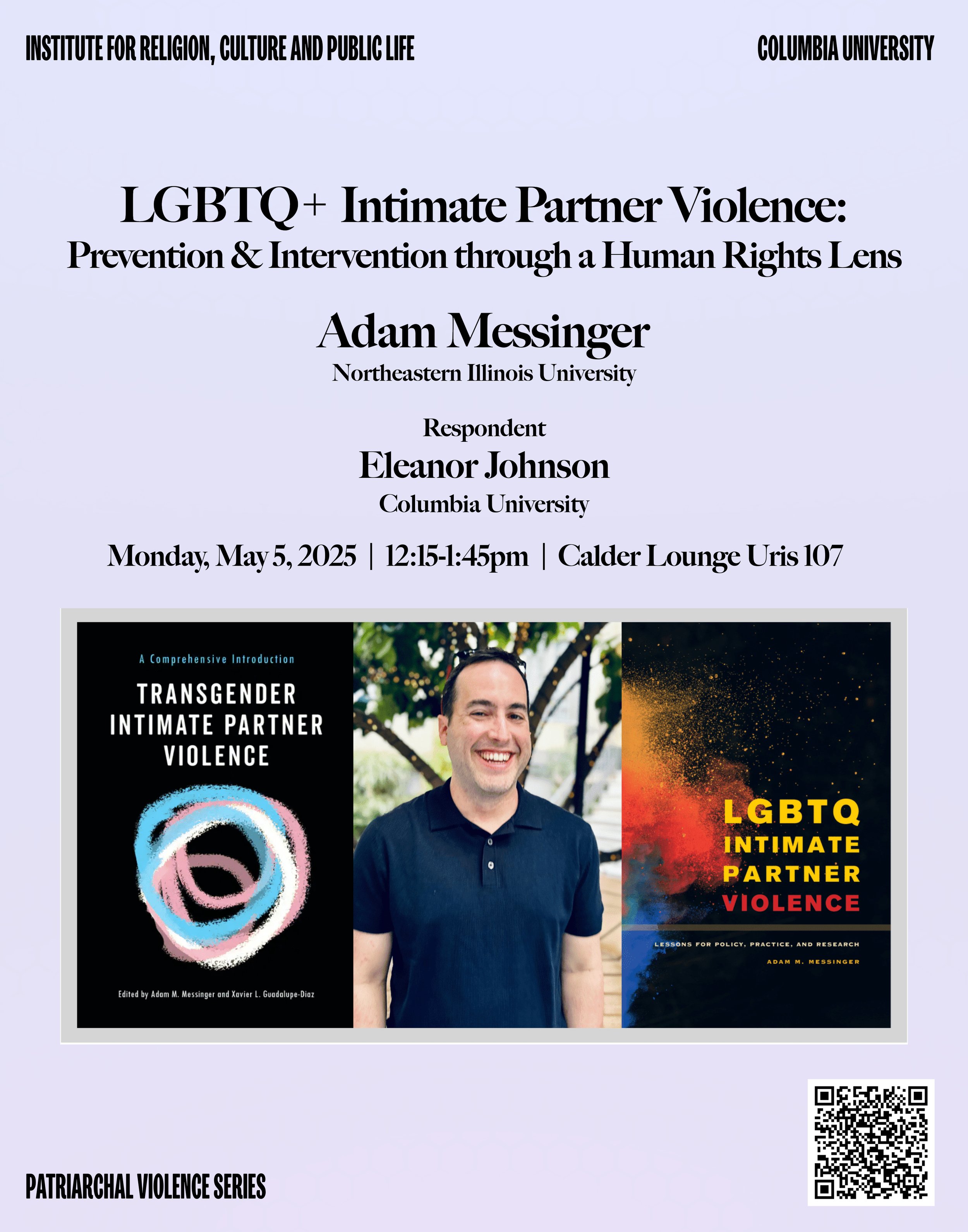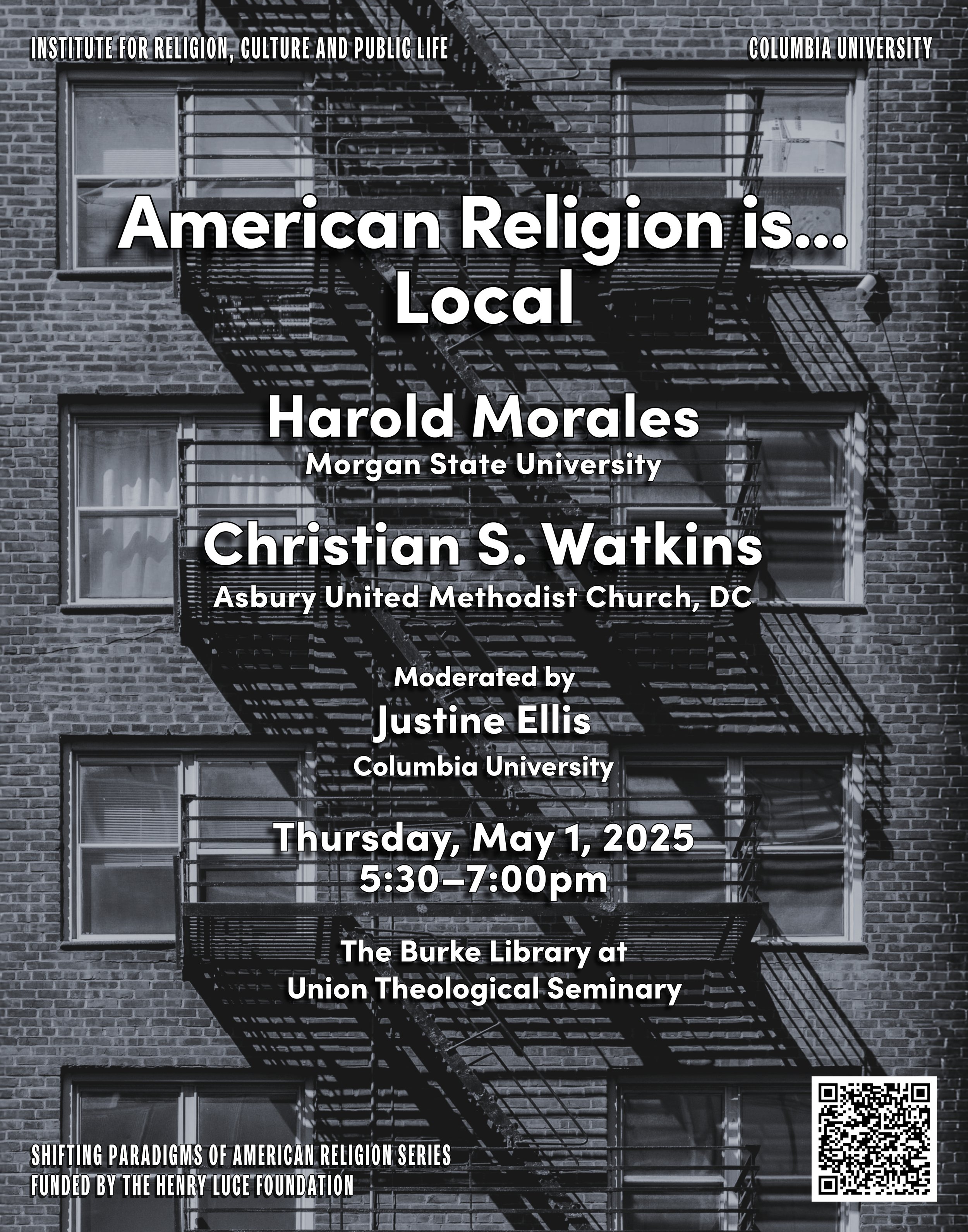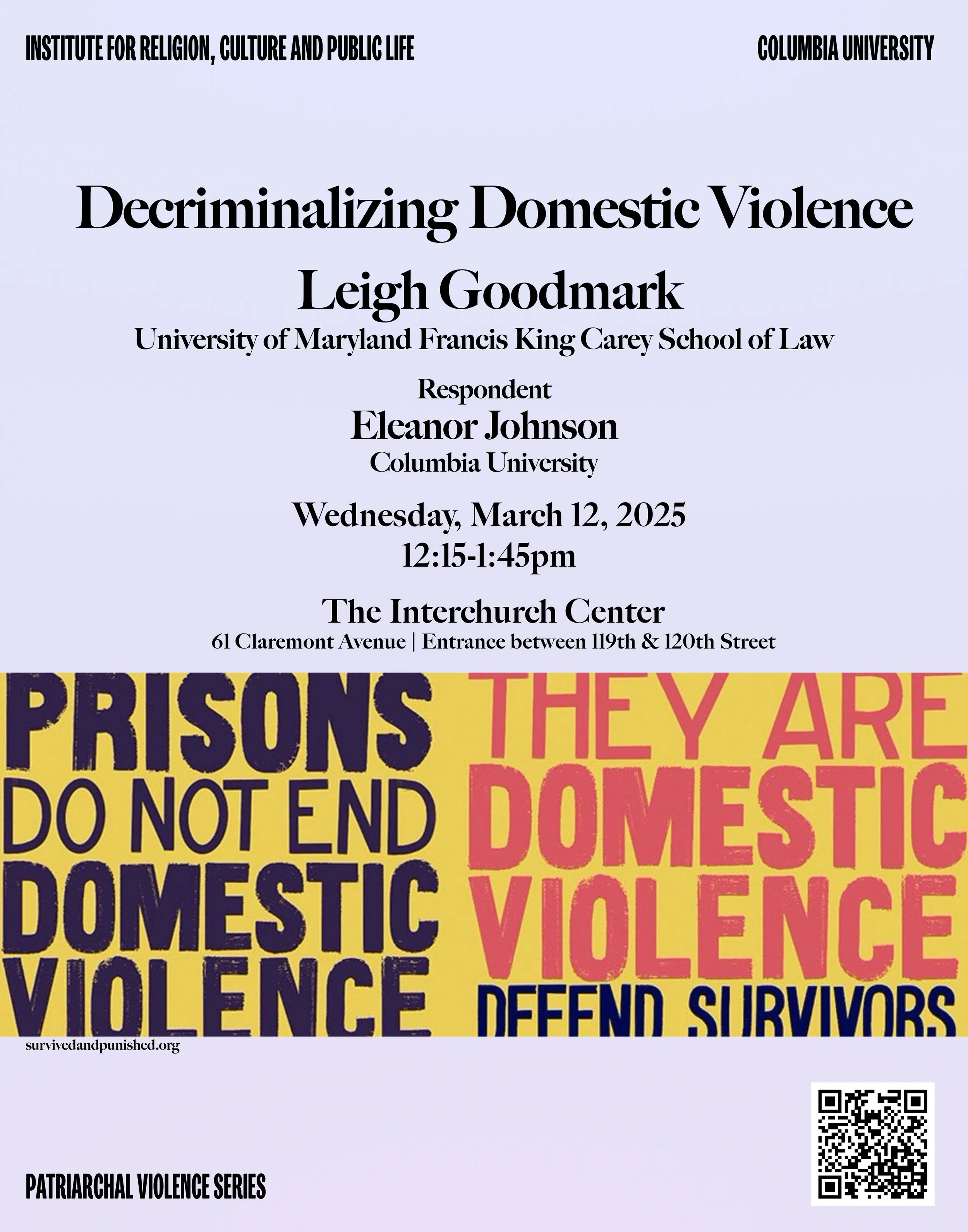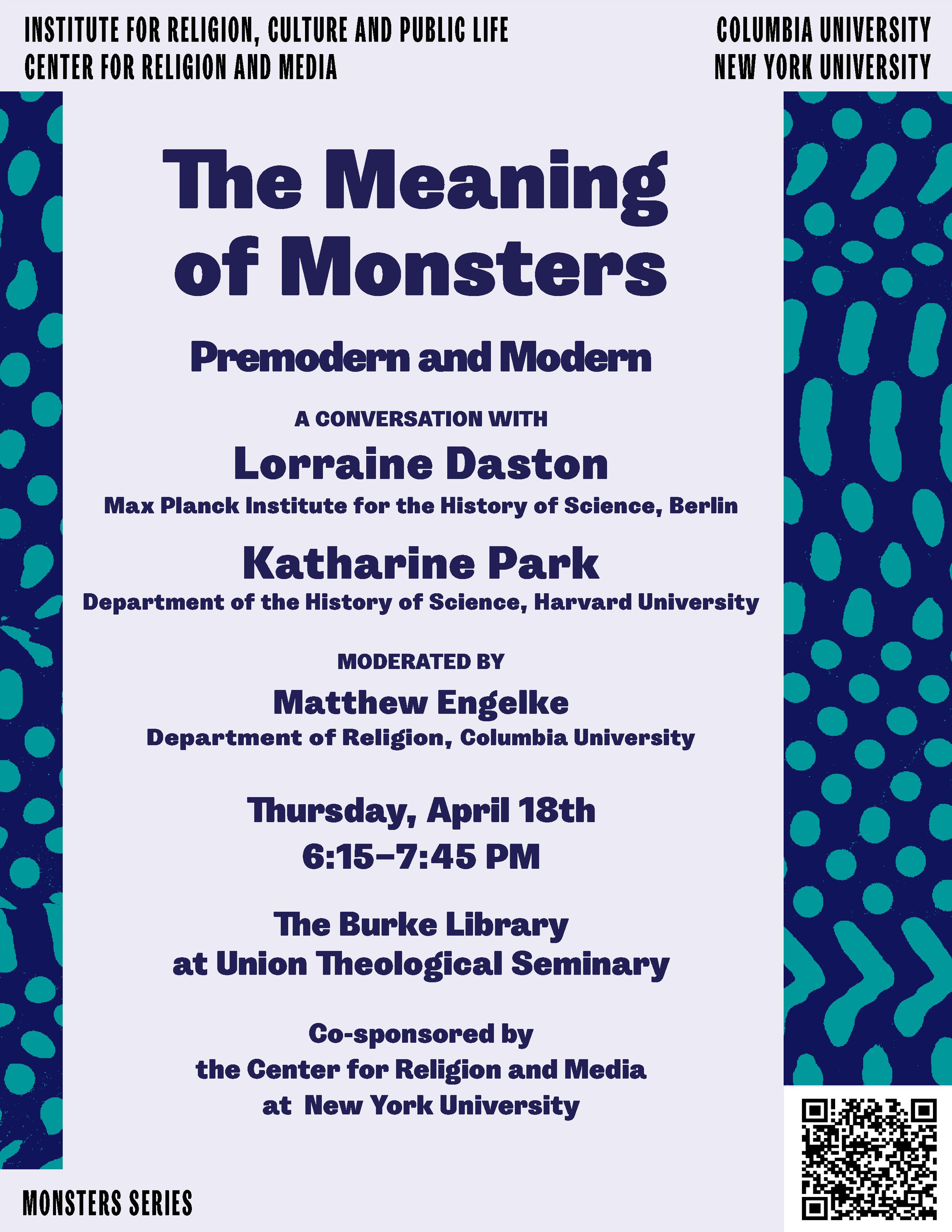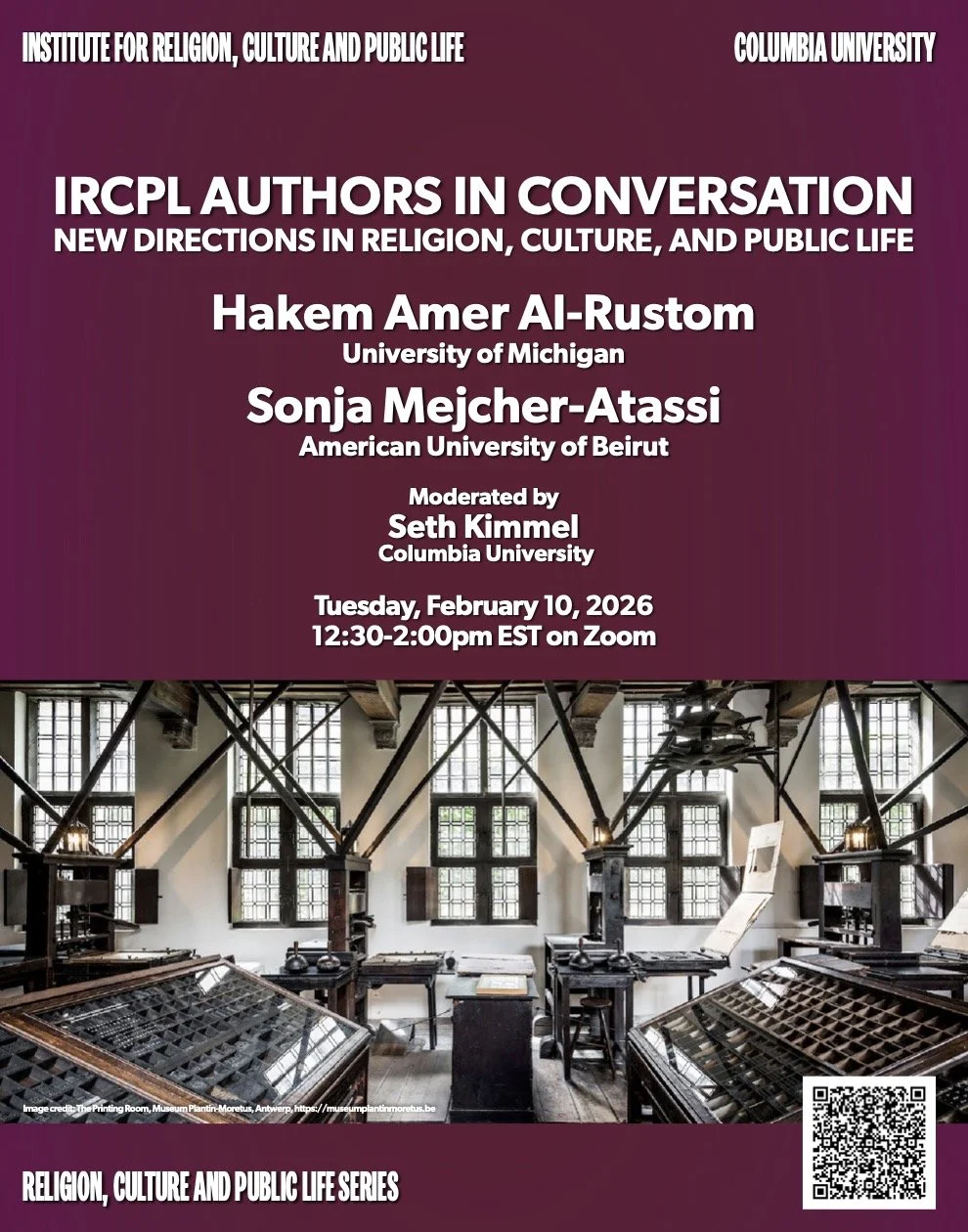
IRCPL Authors In Conversation: New Directions in Religion, Culture, and Public Life
Topics at the intersection of religion, culture, and public life have taken on special urgency in our current moment of social and political upheaval. Join us for an online conversation with recent IRCPL list authors to reflect on what scholarship has looked like in recent years, and to think together about where it could or should head in the future.


